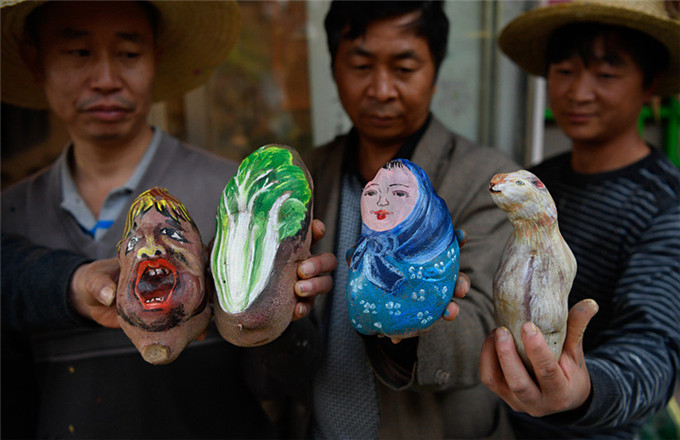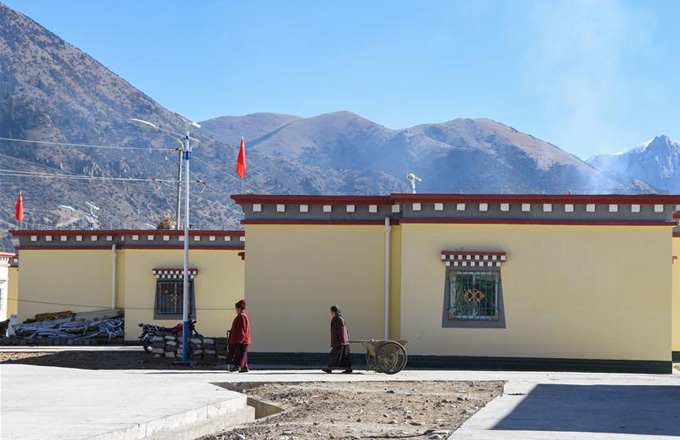Former crab farmer weeds out a fortune
 |
|
Wang Guiya (left) checks the quality of aquatic weeds harvested from one of his ponds in Gaochun district in Nanjing, Jiangsu province. [Photo provided to China Daily] |
While most farmers in Gaochun district in Nanjing, Jiangsu province, make a living breeding crabs, a popular delicacy in China, during the autumn months, Wang Guiya has made a fortune planting aquatic weeds that purify the water and feed the crustaceans.
Wang sell his plants for 30 yuan ($5) per kilogram. This year, he and his partners grew 240 hectares of aquatic weeds, which they expect to bring in more than 26 million yuan when sold.
Success didn't come easy, however. In 1999, Wang's wife divorced him after he ran up debt of 470,000 yuan breeding crabs and running other businesses.
Destitute, he felt like he was out of options - eventually becoming a migrant worker in Changzhou, Jiangsu, to pay off his debts. It was here that he happened upon a new business opportunity while buying vegetables at a local market. He saw that some of the farmers there were selling aquatic weeds and was surprised to learn they could be sold for 16 yuan a kilogram.
"These same aquatic weeds were everywhere in the crab-breeding ponds back in my hometown, "Wang said. "So I quit my job at the factory and immediately hurried back home."
He hired workers to harvest the weeds in Gaochun's ponds and sold them to crab breeders in Changzhou.
"While other people working in factories could only earn 15 yuan a day, I was able to earn about 300 yuan. I started to search for more crab and shrimp ponds in other cities that had weeds growing in them. In 2000, sometimes I could make 10,000 yuan a day," he said.
At that time, many shrimp breeders didn't realize that the plants growing in their ponds could be used to turn a profit. But where they saw only weeds that the shrimps would not eat, Wang saw dollar signs.
There was so much demand, in fact, that he soon began growing aquatic weeds himself. He also breeds shrimps in the weed ponds to increase his profits.
"The weeds sell well because they can provide good nutrition to crabs and purify the water quality at the same time," he said. "Crabs fed on aquatic weeds are 50 grams heavier, at least, than those that are not fed on them."
Nowadays, a lot of crab farmers in Jiangsu buy aquatic weeds from Wang. Customers from as far away as Beijing and Hunan and Hubei provinces have also placed orders after hearing about the quality of his plants.
He's working to share his success with others, too. More than 150 people in Gaochun have learned how to farm aquatic weeds from Wang, and they have formed the country's first aquatic weed cooperative.
Many of its members can earn more than 1 million yuan per year.
And that's not all. As well as aquatic weeds that can be used to feed crabs and purify water more effectively, Wang's company also produces more than 200 plant strains for water pollution control.



























